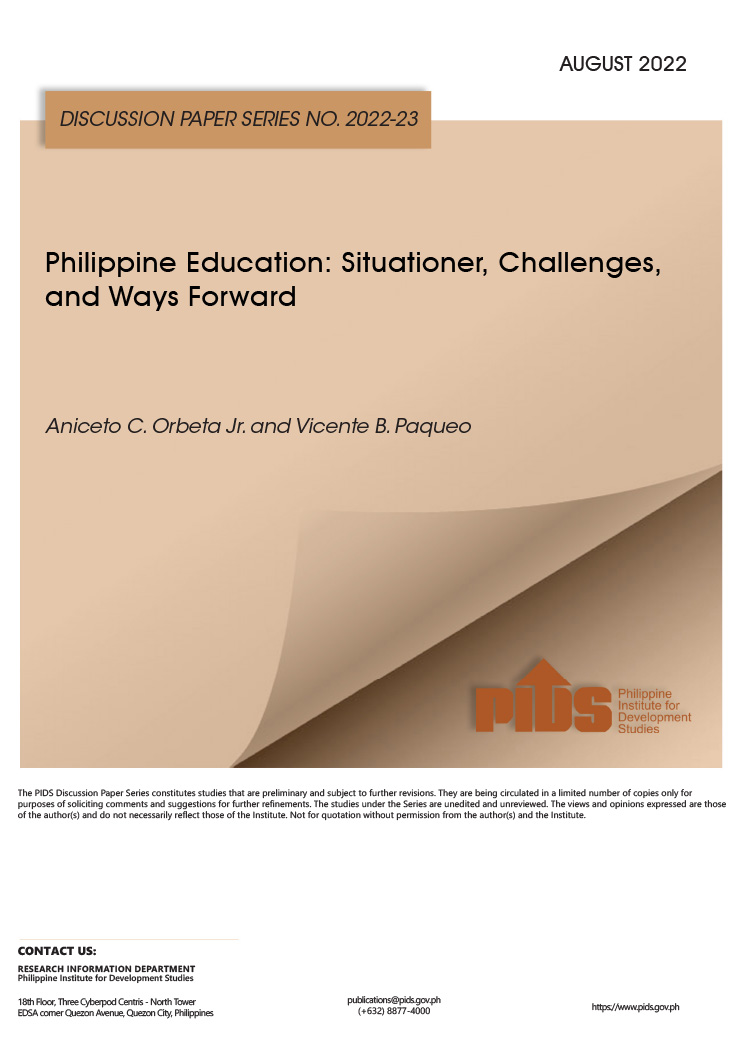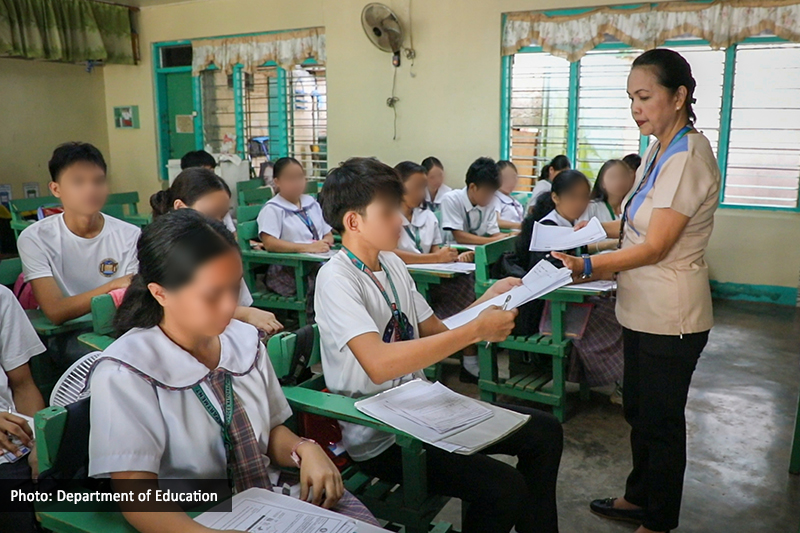While the Philippine education system is in the middle of profound changes with the passage of Republic Act 10533 or the Enhanced Basic Education Act of 2013, the country was rudely awakened by the poor results in its maiden participation in the 2018 Program for International Student Assessment (PISA), which tested 15-year-old students. This result was confirmed further by 2019 Trends in International Mathematics and Science Study (TIMSS) results, which tested grade four students. Everyone's question is: What happened to the Philippine education sector? This paper describes the three education subsectors as answers to three questions: (a) Where does each of the subsectors in terms of their primary outcomes? (b) What are the primary reasons why the subsectors are currently in that state? (c) What are the recommendations on the ways forward? This report draws mainly from research done by the authors at the Institute and occasionally those by other authors. The assessment shows that the country still has high attendance rates at all levels compared to countries of similar development states. It is, however, facing the challenge of low quality on the average even if it also produces high-quality graduates, many of whom have been working in global labor markets for decades now. Another problem is that education outcomes reflect students' socioeconomic status rather than equalizing. Finally, the pandemic, which forced the country to remote learning mode largely unprepared like many countries, introduced another set of challenges in addition to its pre-pandemic problems. The country needs to learn from these experiences, rely more on data, and build rigorously validated evidence on what works for our educational system using our experience as educational outcomes are highly context-sensitive.
Comments to this paper are welcome within 60 days from the date of posting. Email publications@pids.gov.ph
Citations
This publication has been cited 22 times
- Bautista, Jane. 2022. Gov’t think tank: Make education stats public. Inquirer.
- Bautista, Jane. 2023. National Achievement Test for Grade 12 students set. Inquirer.
- Bautista, Jane. 2023. 12-year data track poor training of PH teachers. Inquirer.
- Bermas, Ronnel and Julia Uy. 2023. Free tuition by merit. The Guidon.
- Boo Chanco . 2023. Left behind. Philippine Star.
- BusinessMirror. 2022. PIDS study outlines inequality in pursuing quality education. BusinessMirror.
- Cahiles-Magkilat, Bernie. 2022. PIDS presses swift action on PH education crisis. Manila Bulletin.
- Crisostomo, Sheila. 2023. ‘No homework’ bill filed at House. Philippine Star.
- Crisostomo, Sheila. 2023. ‘No Homework’ bill filed at House. One News.
- Espiritu, Benjamin. 2023. Strengthening teacher education (Opinion piece by Benjamin Espiritu). Daily Tribune.
- Inquirer. 2024. It starts with reading. Inquirer.
- Limlingan, Victor. 2024. TESDA: The stepchild of Philippine education. BusinessWorld.
- Malasig, Jeline. 2023. Viral ‘past tense’ challenge video raises education concerns. Interaksyon PhilStar.
- Manila Standard. 2022. ‘Gov’t needs to act swiftly to avert education woes’. Manila Standard.
- Manila Standard. 2022. ‘Gov’t needs to act swiftly to avert education woes’. Manila Standard.
- Panti, Llanesca. 2023. Lawmaker seeks permanent ban on homework during weekends. GMA News.
- RPN News. 2022. Study urges govt to review learning time in PHL schools. RPN News.
- San Juan, Andrea. 2022. Study urges govt to review learning time in PHL schools. BusinessMirror.
- Santos, Mari-An. 2023. Better pay, benefits lure Filipino teachers to schools in Japan. Rappler.
- Siegfred Bueno Mison . 2023. Extending the extension. BusinessMirror .
- Vigilia, Wendell. 2023. Solon pushes for ‘no homework weekends’ to give students breathing space. Malaya Business Insight.
- Villegas, Bernardo. 2024. Workforce development in the Philippines: The role of MSMEs. BusinessWorld.













